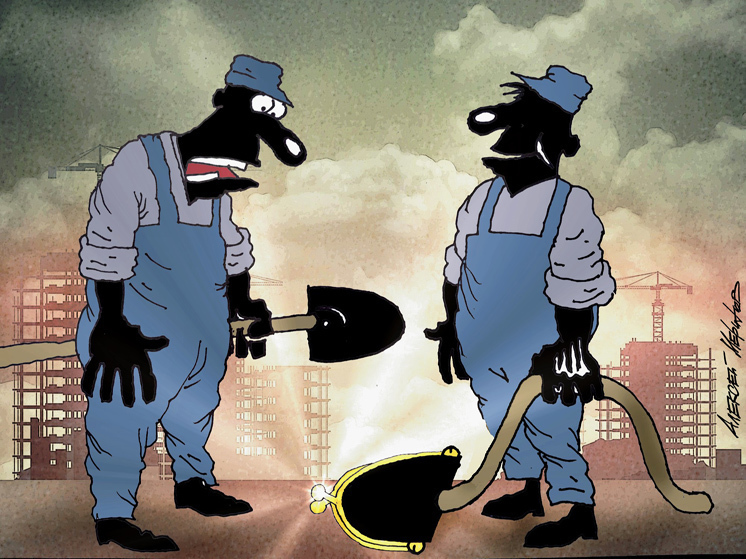“They pay less in trade than in the military-industrial complex”
The Central Bank has prepared a report that clearly confirms that the Russian labor market is experiencing an acute shortage of workers. As follows from the survey of the regulator, 60% of companies lack employees, mostly qualified. To keep staff, three-quarters of employers raised their wages. This pushed up inflation in the country. The second key problem is the increased flow of personnel between industries: people go to where they pay more.

The demand for labor in the first half of 2023 increased markedly as a result of the growth of import-substituting industries (due to the withdrawal of foreign companies from the market) and government orders. Moreover, it is becoming more and more difficult for businesses to find the specialists they need: either the level of applicants is insufficient, or they make excessive salary demands. The most difficult situation with personnel is in mechanical engineering and the chemical industry, according to a study by the Central Bank. At the same time, according to Rosstat, the unemployment rate in July fell to a historic low of 3%. The increase in the number of workers was ensured by labor migration.
“In the context of a shortage of personnel, in order to retain and attract workers, enterprises actively increased wages. This, in turn, led to increased inflationary pressure,” the Central Bank states.
Personnel disproportions between various sectors of the economy are also growing: specialists employed in the areas of trade, services and agriculture are moving into construction and the manufacturing industry. Which, as the regulator notes, “has become the main recipient industry, attracting labor resources from other sectors in most macro-regions.”
The Central Bank’s report intersects with the recent statement by the head of the Ministry of Economic Development Maxim Reshetnikov: “The main problem is the human resource. The shortage of personnel — both quantitative and qualitative — is a serious systemic challenge.
“The situation is clear: the manufacturing industry also includes the defense industry, where today the main state order goes,” says Pavel Kudyukin, a member of the Council of the Russian Confederation of Labor. — Accordingly, employers there have more opportunities to raise wages for people. As for the flow of personnel, this is an important point: if you are a highly qualified specialist in one industry, this does not mean that you will remain such in another. It is clear that IT specialists will find application everywhere. But the engineers will have to put up with the loss of qualifications, agree to a lower salary. Or — to undergo retraining.
In general, the Russian labor market is characterized by structural disproportions: on the one hand, companies require carriers of specific professional skills, and on the other hand, the supply absolutely does not match the demand. We are talking about systemic shortcomings of secondary specialized, vocational and higher education. They are difficult to eliminate, and this is a long-standing global trend, explains Kudyukin: young people choose for training not at all those specialties that are in demand by the market. The problem cannot be solved by administrative methods.”
“The flow of labor is an absolutely natural phenomenon,” argues Aleksey Zubets, a professor at the Financial University under the Government of the Russian Federation. – The manufacturing industry does not always need highly qualified workers, there are plenty of places where you can get by with basic skills. To grind, for example, turbine blades on a machine — there is no such general need. Therefore, there is a washout of personnel from the least paid positions in other sectors. For example, in trade. To keep employees there, employers have to raise salaries, respectively, additional costs are taken into account in the cost of the final product on the store shelf. Here's another pro-inflationary factor for you.”
The current shortage of personnel is a consequence of many years of business policy towards personnel, says Zubets. When in the 1990s we began a massive reduction in production in the public sector, when it began to shrink in volume, a huge number of cheap labor appeared on the labor market. Today, due to age, the last Soviet generation of highly qualified specialists is leaving there. And there is a hole. And they have not learned how to form new personnel in Russia. Over the past decades, the attitude towards people in the workplace has been rather disregarding, low salaries were considered the norm. Relatively decent money was paid either in the financial sector or in the military-industrial complex. And today, Zubets sums up, when this “norm” goes away due to an acute shortage of personnel, and a completely new situation is created for business, they do not understand what to do.


